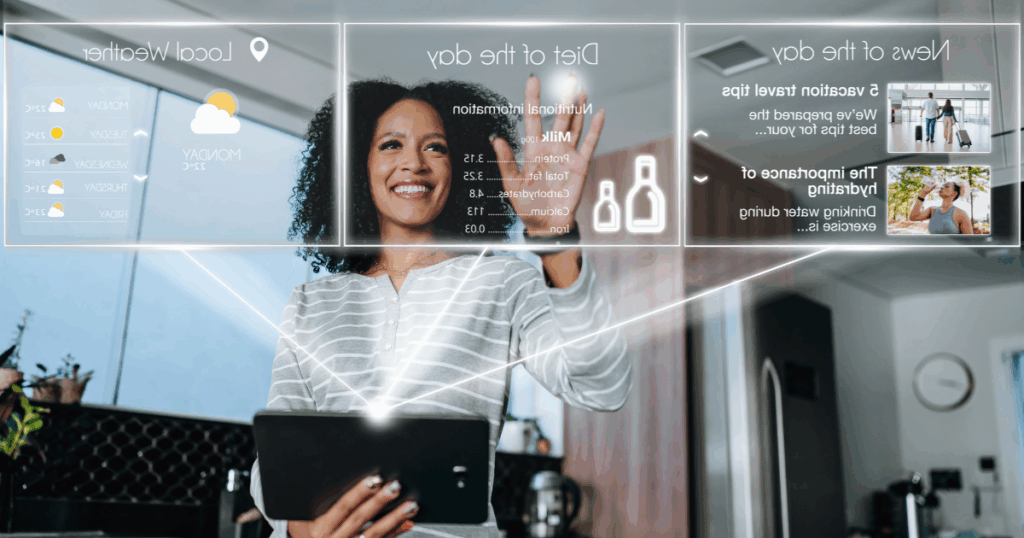The Strength of Vulnerability
During a time of uncertainty, social distance, fear, and panic, how do businesses stay connected?
In a recent episode of The Corelink Solution, career architect Amita Mehta talks to us about the importance of being human, of putting compassion and humanity into your business, even if it’s just a simple “how are you?”
Amita’s career has a little bit of everything – some business advising, work in finance, and even a background in collegiate basketball. This illustrious background, coupled with her no-nonsense attitude, has made even the most senior of CEOs turn her way for her counsel.
She didn’t always have it this easy, however. Amita recalls how being comfortable in her own skin took years. Although praised today for being outspoken, she also shares how she felt like she didn’t have a voice at the table in the past. Today she influences and inspires people to be authentic doers and unapologetic dreamers.
As the world advances further into unfamiliar waters due to the effects of COVID-19, people turn to leaders to give them direction. They turn to world leaders, they turn to leaders within their immediate sphere, and in the workplace – they will most definitely turn to you. What does it take to be able to lead people in this unsettling time, even as you might be facing some uncertainties yourself? Take a look at what Amita has to say on the social part of social distancing and being present, though the world seems to be falling apart.
There Is No Work-Life Balance and What Is Important To Employees
This sounds like the most obvious thing in the world, but it’s usually what people miss out on the most. This is where organizations lose people these days. Never before has the workforce been more focused on one’s purpose. Why are you working here? Why are you working so hard? To what end? Employees used to proudly balance work and life, but today, work and life have become one and the same. Amita and James discuss how work and life have become so intertwined that it’s more important than ever to be human and relatable as a leader.
Amita and I discussed some of the findings from Gallup’s most recent survey where they highlight the shift of what is most important to employees in the workforce.
| Past | Future |
| My Paycheck | My Purpose |
| My Satisfaction | My Development |
| My Boss | My Coach |
| My Annual Review | My Ongoing Conversations |
| My Weaknesses | My Strengths |
| My Job | My Life |
Overcommunication
Social distancing might be the new normal, but today’s world has equipped us with the right tools to actually over-communicate. This doesn’t mean micromanaging every little detail of your team. It is about getting the work done, but it also is about being human.
How does one do this? Amita suggests, other than morning huddle sessions, check-in with your team. How are they doing? How are they coping with the pandemic? Shoot from the hip and be vulnerable by recording and sending videos. Share with your team to let them know that, even though you’re not with them physically, you are absolutely 100% present.
Vulnerability
The traditional image of a leader is usually someone tough, unyielding, and that knows the answers to everything. Amita believes that today there is more value being placed in a leader who isn’t afraid to be vulnerable. Sometimes, this might even mean admitting or communicating that leadership isn’t for you, and that’s okay.
Individuals in the workforce today need to have these vulnerable conversations. That vulnerability opens doors for those who do get excited about the prospect of leading and coaching people and getting the right people in the right roles.
Code-Switching
Amita says that there were times along the way that she could have stepped up and leaned in on things that perhaps didn’t sound so right in a meeting. But she hesitated. “Will they not like me if I make a point that goes against the grain? Could I get fired? Could I lose my job?”
We know this scenario. We’ve probably all been in a similar situation. We’re all guilty of putting on a certain face, especially if you’re face to face with a superior. But as Amita shares, maybe it’s actually better not to hide the different aspects of yourself. Employees don’t always have to be silent, no vote needs to be forfeited if tempered the right way.
“I feel like [staying true to my value base system] has served me well, over time… People will learn to trust you if you’re willing to show them the mirror.
Be Comfortable With The Uncomfortable
Leadership often requires putting yourself in uncomfortable situations. When you give everyone a voice at the table, you’re bound to encounter different opinions. How do you deal with this?
Amita shares how she sees herself as a straight shooter. She’s pretty comfortable with having uncomfortable conversations, even if this means telling your manager something he/she may not want to hear. When we’re honest with individuals in a way that does not put them on the spot or antagonize them, they’ll be more willing to listen and seek advice. Amita built this reputation around her and learned that when people trust the truth in you, they then turn to you for counsel.
I hope you find this helpful. If you’d like to listen to the full discussion or read the full transcript, you can do so here.
To your success!
James




